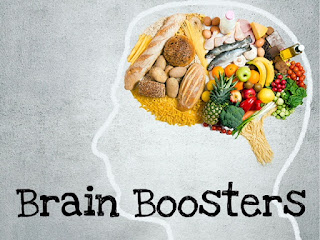Cooking WithOUT Alcohol
P.S The end result may be different from the original, but that does not have to be a bad thing
Amaretto
Instead of this almond-flavoured liqueur, simply use almond extract or almond essence.
Beer or Ale
For light beers, substitute chicken broth or grape juice. For heavier beers, use a stronger chicken or mushroom broth or stock. Non-alcoholic beers may also be substituted.
Brandy
Substitute apple or grape or orange juice. You can also use a brandy flavoured extract or vanilla or lemon extract if the recipe only calls for a small amount.
Calvados
Substitute apple juice for this apple brandy.
Chambord
For this black raspberry liqueur, you can substitute raspberry juice, syrup or extract.
Champagne or Sparkling Wine
Sparkling white grape juice or ginger ale are fine non-alcoholic alternatives.
Claret or Bordeaux
Non-alcoholic wine, diluted red currant or grape juice, cherry syrup work well.
Cognac
This aged, double-distilled wine can be replaced with peach, apricot or pear juice.
Cointreau
You can substitute frozen orange juice concentrate or regular orange juice for this French, orange-flavoured liqueur. If you use orange juice, first reduce (boil) it to give it a thicker consistency before adding to your recipe.
Curacao
Liqueur made from bitter Seville oranges is another ingredient that can be replaced with frozen orange juice concentrate or reduced fresh orange juice.
Creme de Menthe
This thick and syrupy, sweetened mint liqueur, comes in both clear and green varieties. If your recipe needs the green colour, just add a drop of green food colouring. You can use spearmint extract or oil mixed with a little water or grapefruit juice.
Framboise
This is a French raspberry liqueur can be substituted with raspberry juice or syrup or even seedless raspberry jam, depending on the recipe.
Frangelico
Italian hazelnut liqueur which can be replaced with hazelnut or almond extract.
Galliano
This golden Italian anise liqueur has a very specific taste, but can be substituted with either anise or licorice extract.
Grand Marnier
Another orange-flavoured French liqueur which is easily substituted with frozen orange juice concentrate or reduced fresh orange juice.
Grappa
This is a very sweet Italian grape brandy, so you can use either grape juice or reduced non-alcoholic red wine in its place.
Grenadine
The main ingredient in a Shirley Temple comes in alcoholic and non-alcoholic varieties, so opt for the non-alcoholic one.
Hard Cider
Fermented, alcoholic cider can be swapped for apple cider or apple juice.
Kahlua
This sweet, syrupy Mexican liqueur made with coffee and cocoa beans can be substituted with strong coffee or espresso combined with a touch of cocoa powder.
Kirsch
Colourless liqueur made of cherries is easily replaced with any of the following juices: black cherry, raspberry, currant, or grape, or any of the corresponding flavours of syrup, depending on how thick you want your recipe.
Red Burgundy
Dry French wine which can be substituted with a non-alcoholic variety, grape juice or red wine vinegar, depending on how sweet the recipe needs to be.
Red Wine
Non-alcoholic wine, chicken broth or stock, diluted red wine vinegar, red grape juice diluted with red wine vinegar or rice vinegar, tomato juice, and liquid from canned mushrooms are all possibilities.
Rum
For light rum, use pineapple juice flavoured with almond extract. For dark rum, use molasses thinned with pineapple juice and flavoured with almond extract. You could also try rum extract flavouring.
Sake
This Asian fermented rice drink can be swapped for rice vinegar, but be careful of the consistency. Vinegar will obviously be a bit more pungent, so use lesser.
Schnapps
Flavoured, colourless liquor which can be replaced with the corresponding flavoured extract such as peppermint, peach, and so on.
Sherry
Known as a dessert wine, sherry can be swapped for orange or pineapple juice in most recipes.
Tequila
Agave nectar is an acceptable substitute for tequila .
Triple Sec
Another orange-flavored liqueur which can be replaced with orange juice frozen concentrate or reduced fresh orange juice.
Vermouth
The key ingredient in a proper martini, vermouth is a wine-based drink infused with herbs, which may be sweet or dry. If your recipe calls for sweet vermouth, use non-alcoholic sweet wine, apple or grape juice or aged balsamic vinegar. For dry vermouth, use non-alcoholic white wine, white grape juice or white wine vinegar.
Whiskey
This may be the one alcohol that can't easily be substituted with a non-alcoholic alternative. If the recipe calls for a small amount, it may be omitted altogether.
White Wine
Use non-alcoholic wine, chicken broth or stock, diluted white wine vinegar or cider vinegar, white grape juice diluted with white wine vinegar, ginger ale, canned mushroom liquid, or water. For marinades, substitute with 1/4 cup vinegar plus 1 tablespoon sugar plus 1/4 cup water.
Enjoy the festivities and stay blessed with Good Health…Always!!!
Warm regards,
Charmaine D’Souza.



















